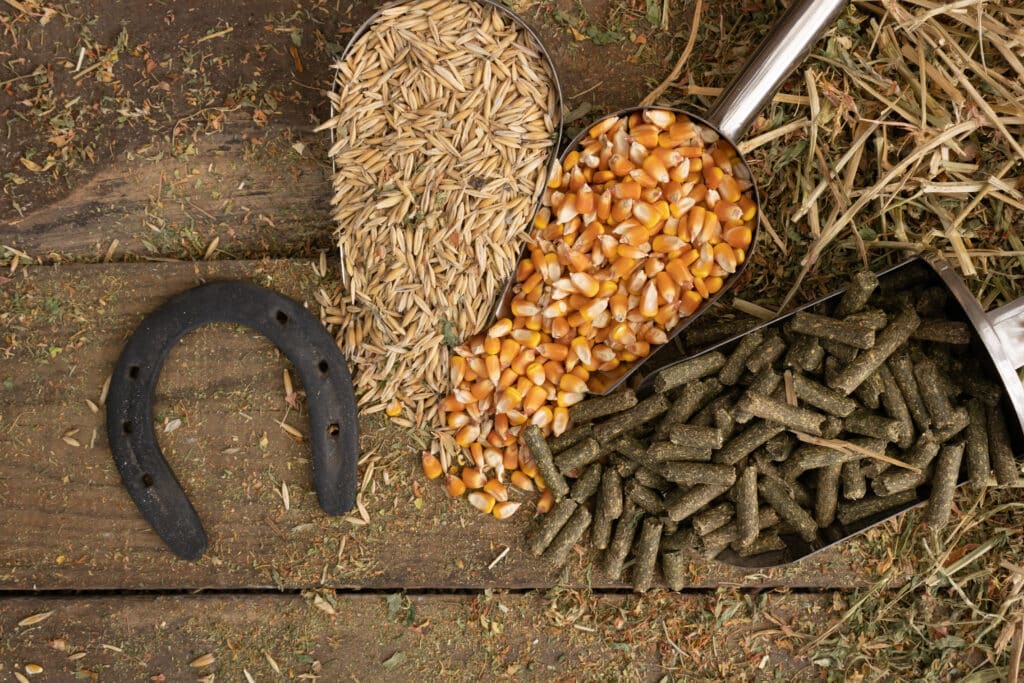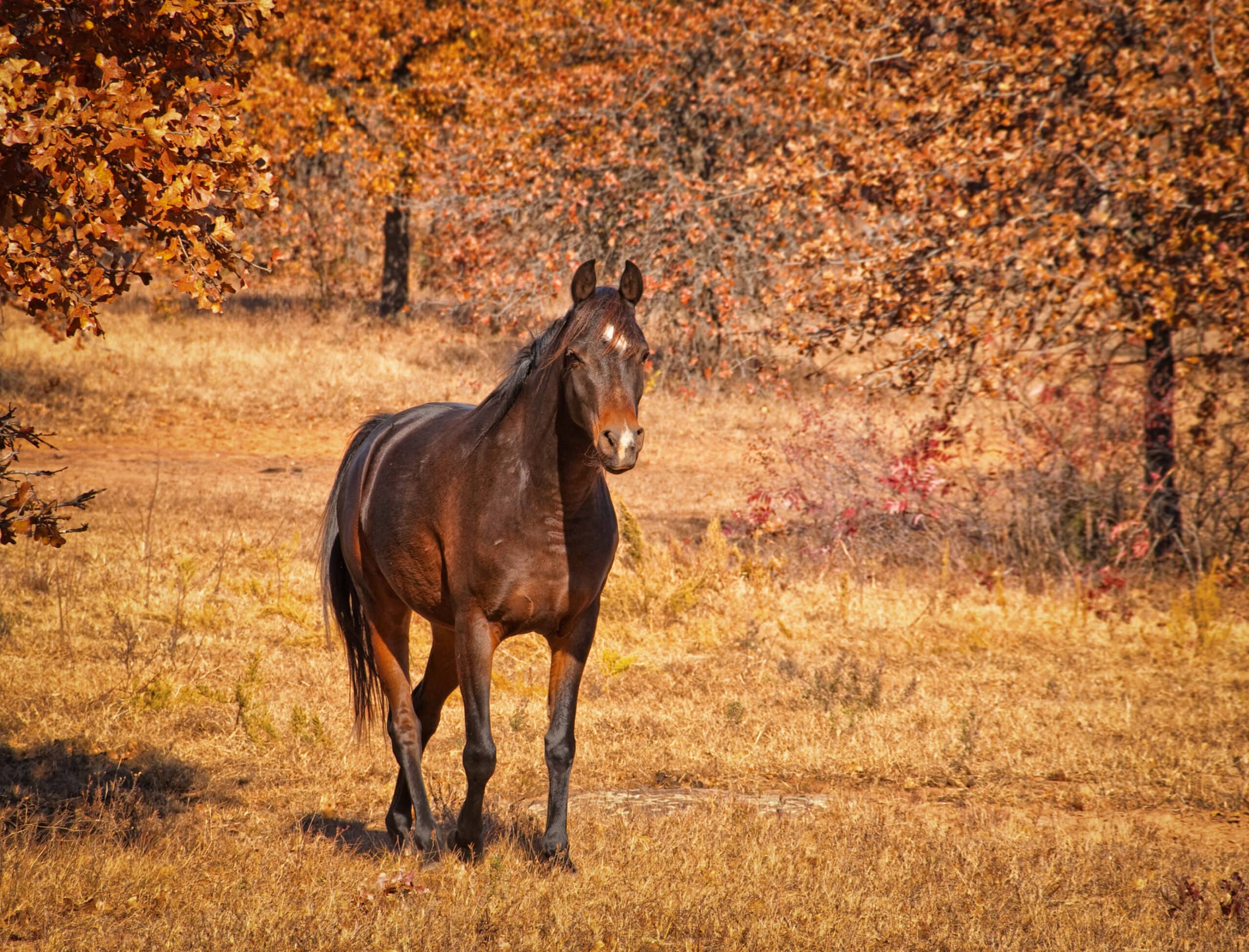6 Expert Tips for Picking the Best Feed for Horses in Fall
As fall approaches, the lush, nutrient rich pastures of summers begin to dwindle. For horse owners, this seasonal shift is a signal to reassess feeding strategies. A horse’s digestive system is highly sensitive to change, and dietary transitions must be made thoughtfully to avoid colic, weight loss, or nutritional imbalances. Choosing the best feed for horses in fall means prioritizing forage, supporting digestion, and supplementing with the proper nutrients to make up for what pasture grass no longer provides.
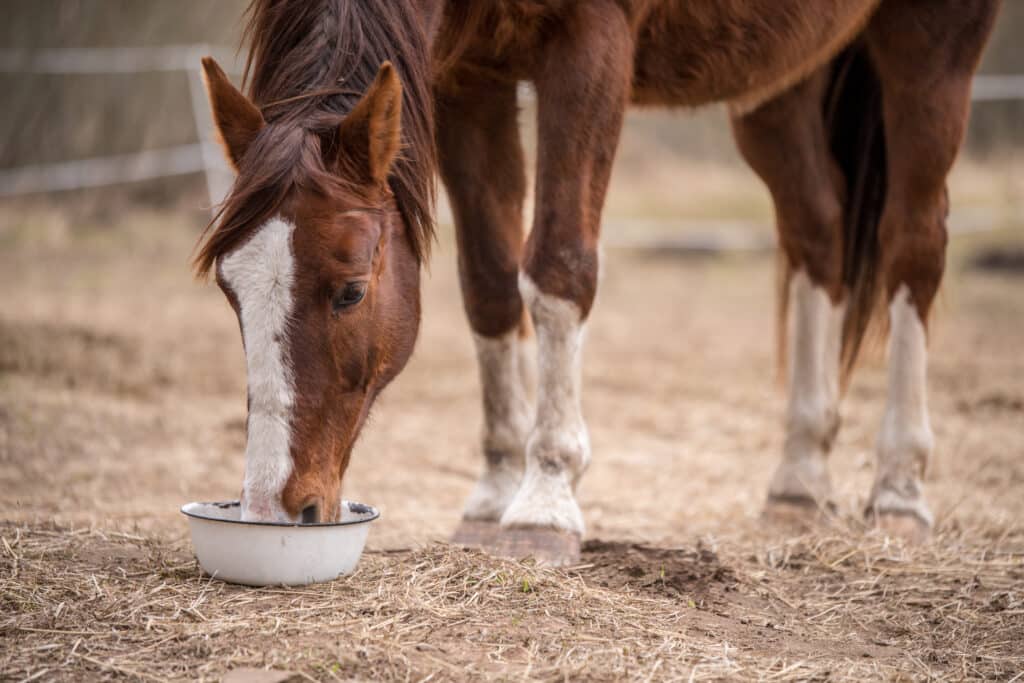
The Transition from Grass to Hay
During summer, many horses thrive on fresh pasture, which provides both calories and hydration. In fall, however, grass loses nutritional value as the weather cools and days shorten. Horses naturally shift toward eating more hay, but the transition should be gradual. Start by offering hay while pastures are still available, so your horse’s digestive system has time to adjust.
A good hay source should smell fresh, be free from dust and mold, and provide a balance of fiber and protein. Timothy, orchard grass, and alfalfa mixes are common choices. Alfalfa offers an extra boost for hard keepers or performance horses. To see our current selection of horse feed and supplements, click here!
Digestive Support During Seasonal Changes
Horses rely on a delicate balance of microbes in their gut to process forage efficiently. Abrupt changes in feed can disrupt this balance, leading to digesting upset or colic. To support gut health, consider probiotics, prebiotics, or yeast based supplements that stabilize the gut microbiome. Providing consistent access to forage, ideally through slow feeders, helps mimic natural grazing behavior and reduces stress on the digestive system.
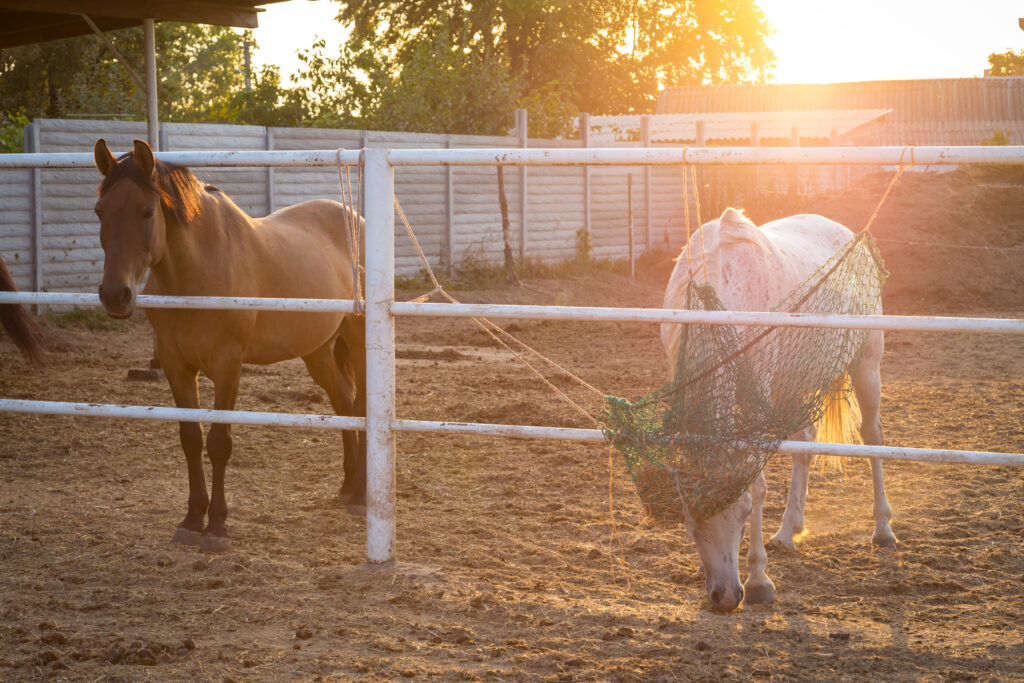
Adjusting Grain and Concentrates
Not every horse requires grain, but for those with higher calorie requirements, concentrates may be an important part of the diet. Fall is the perfect time to reevaluate whether your horse still needs the same amount of grain as in the summer. Horses in lighter work may need reduced rations, while those in heavy training could benefit from additional calories. Always feed concentrates in small, balanced meals to support digestion and prevent starch overload.
Supplements to Consider in Fall
As pasture quality declines as we move from summer to fall, nutritional gaps often appear. Vitamins, minerals, and omega-3 fatty acids may need to be supplemented. A well balanced ration balancer or vitamin/mineral supplementation. A well balanced ration balancer or vitamin/mineral supplement ensures horses receive everything they need even when forage is less diverse. Adding in flaxseed or oils rich in omega-3s can support joint health and promote a shiny coat as horses begin to grow thicker winter hair. To see our current selection of horse feed and supplements, click here!
Hydration and Electrolytes
One common mistake in cooler months is overlooking hydration while considering best feed for horses in fall. Horses tend to drink less in fall because water is cooler, but dehydration can be just as dangerous as in summer. Offer slightly warmed water to encourage drinking and ensure access to plain salt or mineralized salt blocks. Electrolytes may still be useful on warm fall days when horses sweat during exercise.
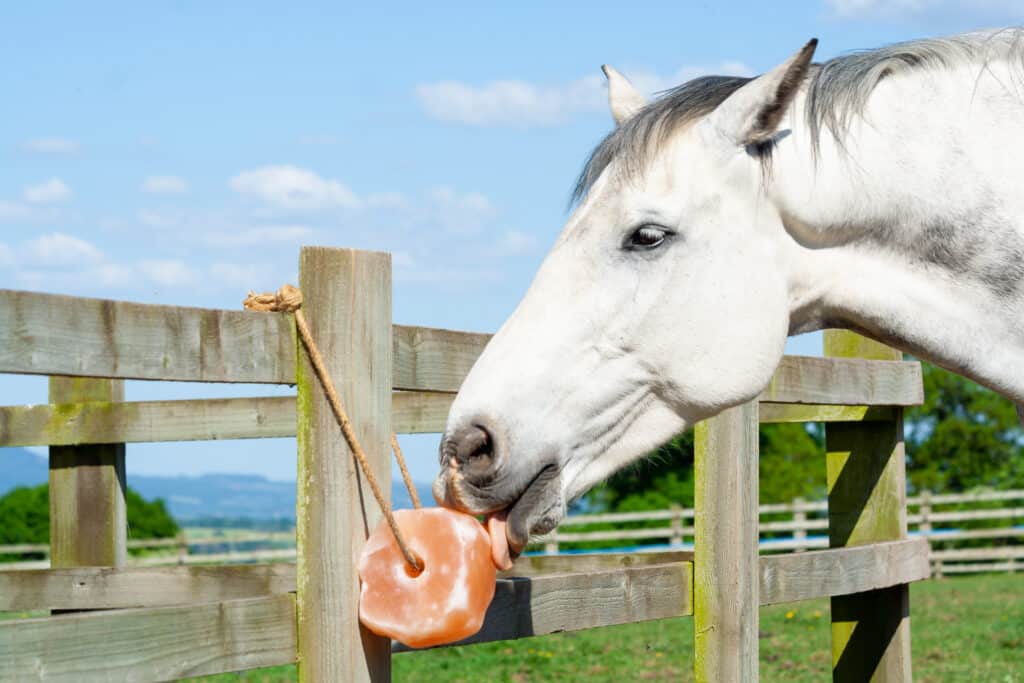
Monitoring Weight and Condition
The best feed for horses in fall is one that adapts to the individual. Some horses gain weight easily when work slows, while others struggle to maintain condition as the weather turns. Evaluate your horse’s body condition weekly by checking ribs, topline, and muscling. Make gradual changes to rations as needed, adding calorie dense forage or fat sources for horses that lose wight, and limiting access to excess calories for easy keepers. When in doubt, be sure to consult your veterinarian.
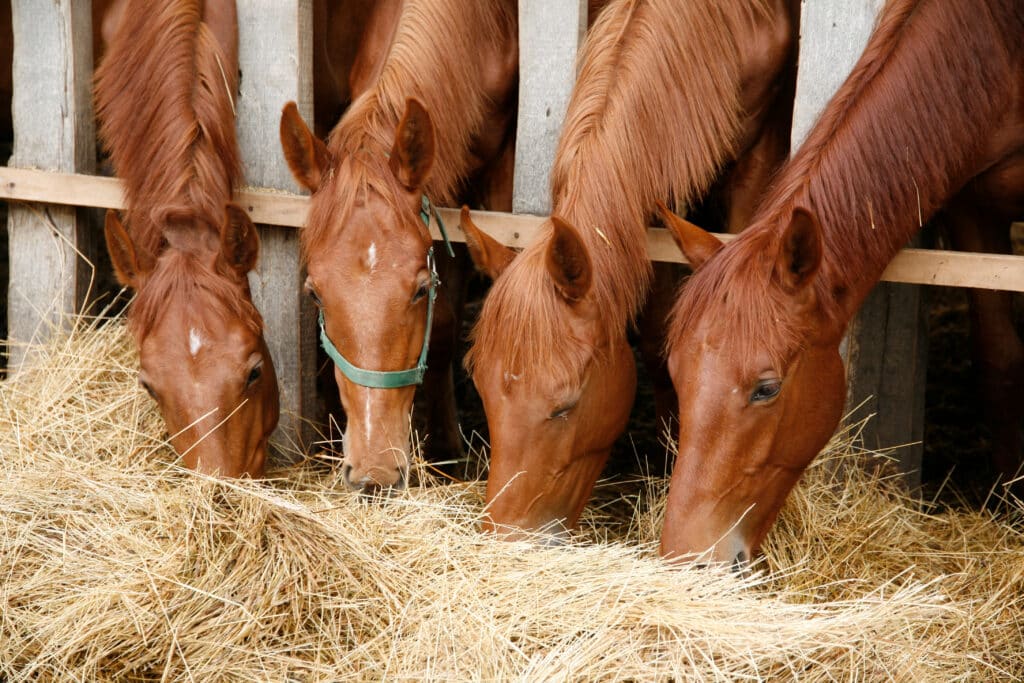
Transition: Best Feed for Horses in Fall
Transitioning your horse’s diet for fall is about balance, patience, and observation. By providing high quality hay, supporting digestion, monitoring hydration, and filling in nutritional gaps with supplements, you can choose the best feed for horses in fall. This will help ensure a smooth seasonal shift. Careful planning today means a healthier, more resilient horse tomorrow.
At The Trainer’s Loft, we carry a wide selection of feeds, supplements, and forage options to support horses through seasonal changes. Our experienced staff can help you choose the best feed for horses in fall, whether you’re transitioning from pasture, managing a performance horse, or supporting a senior horse’s digestion. Visit us for expert advice and quality products to keep your horse thriving.
